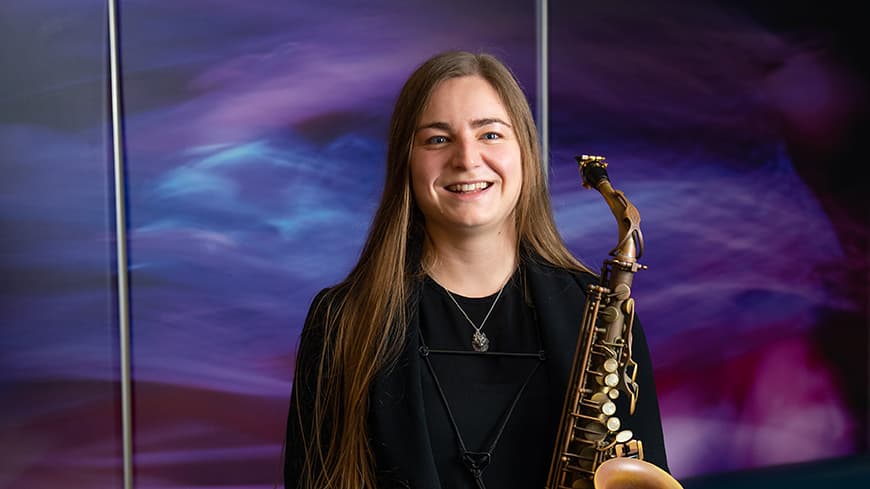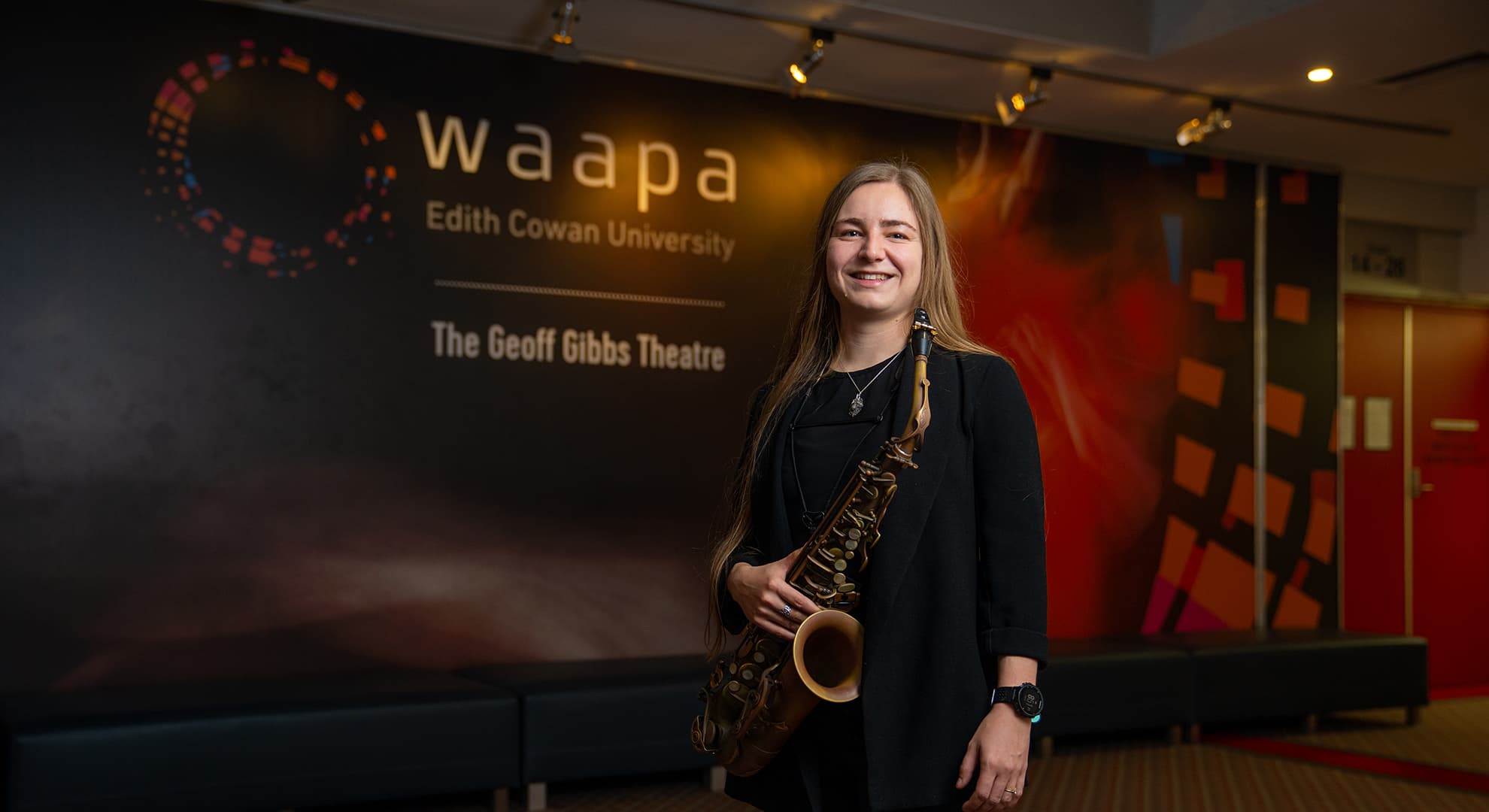
A live performance at Edith Cowan University (ECU) is set to show how sports science and yoga can help prevent injury in saxophonists and keep them in peak mental and physical condition.
Western Australian Academy of Performing Arts (WAAPA) PhD candidate and saxophonist performer Nikki Demandolx is investigating how a holistic approach to injury prevention that uses sports science, yoga and sports psychology might improve the health of saxophonists.
A demonstration of her research will be on show at a performance that combines music and science at WAAPA’s Postgraduate Research Showcase event on Friday, 7 October.
Wearing a heart rate monitor, Ms Demandolx will give a live 20-minute performance of three challenging pieces written by Australian saxophonists and performed on three different saxophones (baritone, soprano and alto).
She will measure her blood lactate levels and heart rate as live data is captured during each performance.
“It’s a great way to assess the fatiguing effect on the body and see if there are any particular elements of the performance that are more taxing on the system than others,” she said.
Addressing high rates of injury
Ms Demandolx said preliminary findings from her study suggest several factors predict higher risk of injury in saxophonists, including overuse, poor conditioning, insufficient recovery and high practice load.
“Current research suggests that up to 93 per cent of musicians have experienced a playing-related injury,” she said.
“Injuries can be career-ending, limit functionality in day-to-day life, and cause significant financial, emotional, occupational, and physical distress.
“Many musicians also feel that being a performing artist is a strong part of their identity, and several studies have correlated performance-related injuries with poor mental health.”
As part of her PhD study Ms Demandolx is aiming to interview up to 20 saxophonists and capture data to see how practice and performance impact the body.
She will use this information to develop a program of targeted performance recovery sessions, practice scheduling and saxophone specific exercises to improve performance and prevent injury at the same time.
Ms Demandolx said sports science has been enabling performers to be at their peak and prevent injury with high training loads for decades.
“I am using proven sports science techniques such as warming up, stretching, conditioning exercises, and periodisation as a way to schedule training, or in this case practice sessions,” she said.
“From the yoga side of things, I’m looking at mental preparation and breath training since the breath is such an important and fundamental part of saxophone playing.
“I’m also using yoga to reduce muscle tension from long or intense practice hours, and to gently improve mobility, strength and endurance in the body.”
The WAAPA Postgraduate Research Showcase is on Friday, 7 October at 7.30pm at ECU’s Mount Lawley Campus. It offers a rare opportunity for the public to sample innovative arts research projects, ranging from composition to saxophone and piano, in their developing stages. Visit the webpage for more information and to book free tickets.
For research news delivered to your inbox, sign up to our fortnightly newsletter.
 WAAPA PhD candidate Nikki Demandolx is investigating how sports science and yoga can be used to help prevent injury in saxophonists.
WAAPA PhD candidate Nikki Demandolx is investigating how sports science and yoga can be used to help prevent injury in saxophonists.


